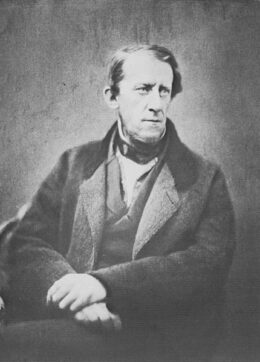Printed
60 pages
Author(s)
Undine, die Wassernixe
Pocci freely rewrites, as usual, the tale Ondine by the Romantic writer Friedrich de La Motte-Fouqué (1811), a fashionable subject in the 19th century, since it also inspired Hans Christian Andersen's Little Mermaid (1837) and the composer Antonín Dvořák his opera Rusalka (1900). Pocci, on the contrary, deals less with the theme of male infidelity than with the perversion of society. The ending of the drama can even been read as the criticism of obtuse Christianity, when Heinrich curses Huldbrand with these last words:"Woe to you, you who love a fairy! Christianity has cast you out! Cursed be the one who remains close to you!”("Weh Euch, die Ihr eine Fey geminnt!Verstoßen hat Euch die Christenheit!Fluch dem, der Euch nahe bleibt!")
Loyalty put to the test
The knight Huldbrand gets lost on a stormy night by a lake and finds refuge with fishermen. He falls in love with the foundling Undine. The girl is in fact a mermaid, cursed by her people to dissolve into a wave if she is rejected by men, and to join them underwater if her true identity becomes known. Huldbrand marries Undine, but offends Berthalda, the adopted daughter of Prince Heinrich. When Heinrich visits Huldbrand, the fishermen recognise Berthalda for the child they had lost, but Berthalda rejects them with contempt. Heinrich banishes her from his presence. In despair, advised by the water genie Kühleborn, Berthalda publicly reveals Undine's identity and Heinrich curses her and Huldbrand. Huldbrand refuses, however, to abandon his wife and she takes him with her to live among her people under the waters, in a crystal palace.
First performance
Münchner Marionettentheater
Publications and translations
Franz Pocci: Lustiges Komödienbüchlein, sechstes Bändchen. München, Ernst Stahl, 1877.
Franz von Pocci: Lustiges Komödienbüchlein 6, Editio Monacensia, hrsg. von Ulrich Dittmann, München, Allitera Verlag, 2011.
